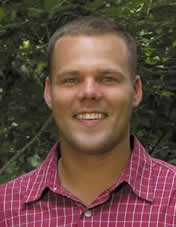
I was in Canada on Tuesday morning and stumbled across an interesting article in
The Globe about Denver Broncos’ kicker Jason Elam. The article,
Elam brushes up on religious studies, explains why the 37-year-old NFL star is pursuing a master of divinity degree. Elam said that it all started in college: “I was just this Atlanta, Southern, country guy and went off to college and I had friends from all over the world and with that diversity came a big diversity in faith. And I had never met a Mormon or a Jehovah's Witness or a Muslim or an atheist or a Baha'i. I had never met those people before.”
Surrounded by the diversity, Elam began to think more thoroughly about why he believed the things he believed. College, for Elam, was about settling in on deepest convictions, dealing honestly with his own doubts and coming out the other side stronger in his Christian faith. He continues to grow and learn, with an “off-season” schedule of mission’s trips and graduate classes, even taking courses at Oxford.
But Elam’s story is not like many teenage Christians who head off to college. For reasons given in LifeWay’s new research, a large percentage of students drop out of church after high school. From the website:
“A new study from LifeWay Research reveals that more than two-thirds of young adults who attend a Protestant church for at least a year in high school will stop attending church regularly for at least a year between the ages of 18 and 22.
As young people transition from high school into the workforce or college life, they are faced with many choices – including whether to continue attending church. Although this decision is a source of concern for parents and church leaders, discussion of the reasons young adults choose the direction they do has largely been speculative.
‘Lots of alarming numbers have been tossed around regarding church dropouts,’ said Ed Stetzer, director of LifeWay Research, the research arm of LifeWay Christian Resources of the Southern Baptist Convention. ‘We wanted to get at the real situation with clear research – and there is some bad news here, no question. But, there are also some important solutions to be found in the research. When we know why people drop out, we can address how to help better connect them.’"
You can learn more about the research
here.
USAToday provides a nice summary of the findings
here.
On a similar note, John Seel has written a very important article which gets at the heart of this issue. Seel contends that most students don’t attend church because they don’t understand why church attendance is vital to life and faith. You can read his insightful
Making the most of college: Recovering the Lost Logic of Church here.




